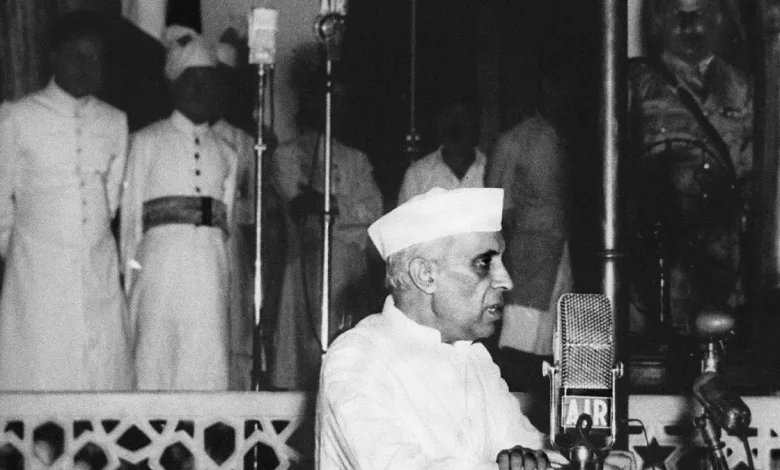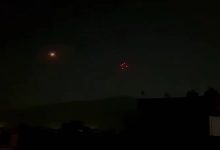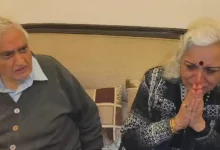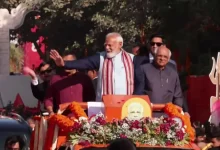Tense Triumphs and Tragedies: Inside the Final 24 Hours Before India’s Independence

As the British Raj drew to its dramatic close on August 14, 1947, a whirlwind of anticipation, peril, and sorrow gripped the subcontinent, setting the stage for the birth of two nations.
The sweltering heat of Karachi greeted Lord Louis Mountbatten’s arrival that day, with crowds buzzing in celebration. As India’s final Viceroy, he faced a packed itinerary: administering the oath to Muhammad Ali Jinnah as Pakistan’s inaugural Governor-General, giving a speech of goodwill, and rushing back to Delhi by midnight. Yet, beneath the festivities, tension mounted due to fresh intelligence about an assassination attempt on Jinnah.
The Choice of August 15
Originally, British Prime Minister Clement Attlee planned the power transfer for June 30, 1948. But escalating communal violence prompted Mountbatten to advance the timeline. At a press conference, he impulsively selected August 15, later confessing in “Freedom at Midnight” that the date “came out of the blue,” like a spin on a roulette wheel, allowing him to appear in command as the “master of the whole event.”
The date held personal meaning for Mountbatten it marked the second anniversary of Japan’s World War II surrender in 1945, a victory he oversaw as Supreme Allied Commander in Southeast Asia. He viewed it as a fitting emblem of Asia’s rebirth, shifting from wartime success to political milestone.
An Unlucky Date?
Indian astrologers deemed August 15, 1947, highly inauspicious, falling on a Friday during the dark lunar phase of Krishna Paksha Chaturdashi, followed by the new moon Amavasya considered ill-suited for major beginnings like a nation’s independence.
They predicted disasters if the handover proceeded, with one astrologer warning Mountbatten in a letter quoted by Lapierre and Collins in “Freedom at Midnight”: “For the love of God, do not give India her independence on August 15. If floods, famine and massacres follow, it will be because free India was born on a day cursed by the stars.”
Indian leaders found a workaround: scheduling the ceremony at midnight between August 14 and 15. This aligned with the Western calendar’s start of August 15 but evaded Hindu astrological pitfalls, as the new day begins at sunrise balancing Mountbatten’s preference with cultural concerns.
9:00 AM in Karachi
Just a day prior, a CID officer had alerted Mountbatten: “Sir, the plot is on,” warning of bombs targeting the open car for him and Jinnah, as detailed in “Freedom at Midnight.”
In the charged atmosphere of Karachi’s Constituent Assembly Hall, Mountbatten swore in Jinnah, the determined barrister weakened by tuberculosis but resolute in creating a Muslim state. Jinnah envisioned tolerance: “You are free; you are free to go to your temples, you are free to go to your mosques or to any other place of worship in this State of Pakistan.” Amid fireworks and a 31-gun salute, underlying dangers loomed.
Meanwhile, Punjab’s fields ran red with partition violence, as millions fled Hindus and Sikhs eastward, Muslims westward resulting in up to two million deaths and 15 million displaced in one of history’s largest migrations. Trains arrived laden with mutilated bodies, canals choked with bloodied remains
The Assassination Threat Against Jinnah
Mountbatten’s anxiety peaked during speeches, wary of joining Jinnah’s risky parade despite the warnings. As described in “Freedom at Midnight,” the 30-minute drive felt eternal: “A heart-stopping 31-gun viceregal salute followed them… into Karachi’s streets… a sea of anonymous faces concealing… the face of the man who wanted to kill them.”
The plot’s motives extremists, rivals, or factions remained unclear, heightening the vulnerability of Pakistan’s nascent state amid Jinnah’s failing health.
Calcutta: Gandhi’s Fight for Peace
In contrast, Mahatma Gandhi shunned festivities, choosing Calcutta’s riot-scarred slums to fast for harmony from a Muslim friend’s home a bold stand against division.
On August 14, facing angry mobs, he appeared at his window with his granddaughter and former Bengal chief minister Huseyn Shaheed Suhrawardy, urging: “We must work until every Hindu and Muslim in Calcutta can return safely to their homes… until our last breath.” Remarkably, his fast subdued the violence, showing one man’s resolve could triumph where force failed.
3:45 PM in Karachi
Jinnah and Mountbatten’s Rolls-Royce navigated throngs, with a CID officer poised on a balcony. Mountbatten braced for danger in a Hindu area along Elphinstone Street, but as “Freedom at Midnight” recounts, “For five agonising minutes, the cortege crept… Nothing happened… The most harrowing drive of Louis Mountbatten’s life was over.” Authors Collins and Lapierre note the plot fizzled when the grenade-thrower lost nerve.
9:00 PM in New Delhi
Monsoon skies loomed over Delhi as Jawaharlal Nehru refined his iconic speech at 17 York Road. A procession of seers arrived with holy water from Tanjore rivers, prasadam from a Nataraja temple in Madras, and a five-foot mace, anointing him with ash and divine cloth.
But news of Lahore’s fires and cut water supplies to Hindu-Sikh areas crushed his spirit. As quoted in “Freedom at Midnight,” he whispered: “How am I going to talk tonight? How am I going to pretend there’s joy in my heart for India’s independence when I know Lahore, our beautiful Lahore is burning?”
11:00 PM: A Tryst with Destiny
Nehru’s car wove through tense, gunfire-punctuated streets, evoking memories of his imprisoned years and anti-colonial fight. Entering the Constituent Assembly amid fluttering flags and conch blasts, he joined Mountbatten for the Raj’s end.
At 11 PM, Nehru delivered his stirring address: “Long years ago we made a tryst with destiny, and now the time comes when we shall redeem our pledge… At the stroke of the midnight hour, when the world sleeps, India will awake to life and freedom.”
Midnight brought cheers as the Union Jack descended and the Tricolour rose, with fireworks illuminating the Red Fort and joyous crowds at India Gate. Temples echoed with bells and prayers as freedom dawned. Nehru captured the essence: “A moment comes, which comes but rarely in history, when we step out from the old to the new… when the soul of a nation, long suppressed, finds utterance.”




